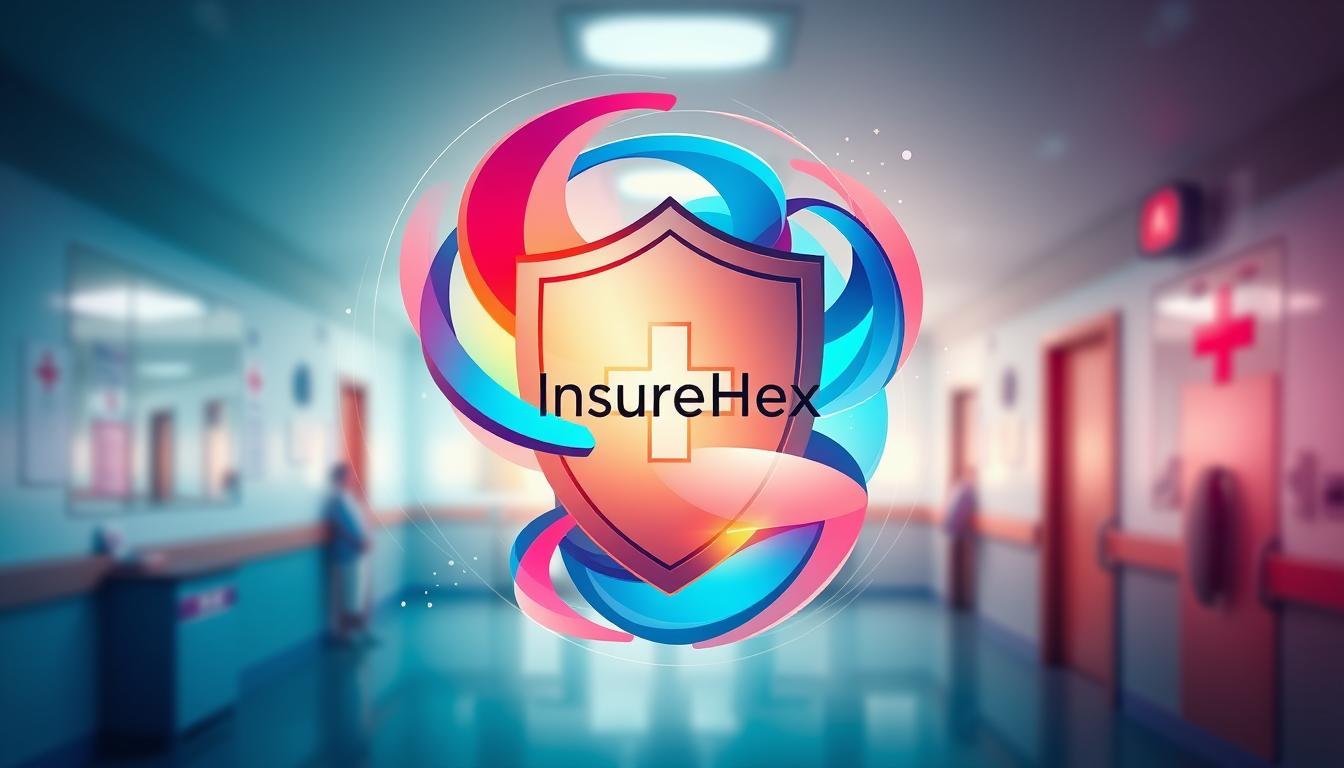Did you know that over 1 in 4 adults in the U.S. will face a disabling illness or injury before age 67? This fact shows how important insurance against illness is to protect your finances and health. We’ll explore the coverage options you need to stay safe from life’s unexpected events.
Medical costs, accidents, and disabilities can be very expensive. Having the right insurance helps manage these risks. Knowing about different insurances can help you protect yourself and your family from big financial hits.
Key Takeaways
- Over 1 in 4 adults in the U.S. will experience a disabling injury or illness before age 67.
- Comprehensive insurance coverage is crucial to safeguarding your financial future and well-being.
- Insurance can help mitigate the financial risks associated with medical costs, accidents, and disabilities.
- Understanding the different types of insurance and how they work together is essential for protecting yourself and your family.
- Taking proactive steps to secure the right insurance policies can provide peace of mind and financial stability in the face of unexpected challenges.
Understanding the Importance of Comprehensive Coverage
Comprehensive insurance is key to protecting against financial risks from illness, accidents, and disability. It helps keep your finances stable. This way, you and your family can face unexpected medical costs or lost income without worry.
Mitigating Risks and Safeguarding Financial Stability
Health problems or accidents can lead to big financial troubles. They cause high medical bills and lost income. Comprehensive insurance covers these costs, keeping your finances safe. It lets you focus on getting better without financial stress.
Assessing Individual and Family Needs
- Think about your age, health, and any pre-existing conditions when picking insurance.
- Look at your family’s needs, including kids and older relatives, to make sure they’re covered.
- Check your income, assets, and goals to find the right coverage level.
By understanding your and your family’s needs, you can choose the best insurance. This smart planning helps you protect your finances and future.
“Comprehensive insurance coverage is the foundation of financial security, shielding you and your loved ones from the unexpected.”
Health Insurance: Protecting Your Well-being
Health coverage is key to a good insurance plan. It covers regular medical costs, preventive care, and unexpected illnesses or injuries. Understanding health insurance is crucial for our well-being.
There are many health insurance plans out there. They vary from employer-sponsored to individual plans. Finding the right one can be tough. But, by knowing our health needs, we can choose the best plan.
Health insurance helps with chronic conditions, acute needs, and preventive care. It gives us financial security and peace of mind. By getting medical protection plans, we avoid the financial stress of medical expenses.
We will explore different health insurance types, their benefits, and how to pick the best health coverage. This will help us find the right plan for our needs.

“Health insurance is not just about protecting your finances; it’s about safeguarding your overall well-being and providing the peace of mind you need to focus on your health.”
Accident Insurance: Preparing for the Unexpected
Accidents can happen anytime, and the costs can be high. Accident insurance helps cover these unexpected costs. It ensures you and your family are safe financially. We’ll look at the benefits and types of coverage to help you protect your future.
Coverage for Medical Expenses and Lost Income
Accident insurance covers many medical costs, like hospital stays and emergency visits. It also helps if you can’t work because of an injury. This way, you can keep your finances stable while you recover.
The main benefits of accident insurance are:
- Reimbursement for medical expenses related to accidental injuries
- Replacement of lost income due to missed work
- Lump-sum payments for certain types of injuries, such as fractures or dismemberment
- Coverage for transportation and lodging costs associated with medical treatment
Getting accident insurance gives you peace of mind. It’s especially useful for those who take risks or have jobs that are hard on the body.
| Coverage | Benefit | Payout Range |
|---|---|---|
| Medical Expenses | Reimbursement for hospital stays, emergency room visits, and rehabilitation costs | $1,000 – $50,000 |
| Lost Income | Replacement of lost wages due to missed work | $500 – $5,000 per month |
| Lump-Sum Payments | One-time payouts for certain types of injuries, such as fractures or dismemberment | $2,500 – $50,000 |
Knowing the benefits and options of accident insurance helps you make smart choices. It’s a step towards securing your financial future against unexpected events.
Disability Insurance: Secure Your Earning Potential
It’s key to keep your finances safe, especially when you’re sick or hurt for a long time. Disability insurance is a big help in keeping your money coming in and your family safe. Knowing the difference between short-term and long-term disability plans helps you pick the right one for you.
Short-Term Disability Options
Short-term disability insurance covers you for a short time, usually a few weeks to a few months. It helps pay some of your lost income if you can’t work because of a short illness. This insurance is great for the first part of your recovery, so you can heal without worrying about money.
Long-Term Disability Protection
Long-term disability insurance is for when you’re out of work for a long time. It can last for years or until you retire. This insurance keeps your financial stability and earning potential safe if you get very sick or hurt. It covers important costs like medical bills and daily living expenses, giving you peace of mind when things are tough.
| Coverage Type | Benefit Period | Percentage of Income Covered |
|---|---|---|
| Short-Term Disability | 3-6 months | 40-60% |
| Long-Term Disability | 2 years to retirement | 50-70% |
By looking at what you and your family need, you can make sure your disability insurance protection plans really cover you. This way, you can keep your finances safe even when things get tough.

Navigating Insurance Policies and Options
Understanding insurance policies and options can seem tough. But knowing the difference between employer plans and individual insurance policies helps. This knowledge lets you choose the best protection plans for you and your family.
Employer-Sponsored Plans vs. Individual Policies
Employer plans are often cheaper and convenient. The employer usually pays part of the premium. These plans may include health, life, and disability insurance.
Individual plans, however, offer more flexibility. You can customize the coverage to fit your needs and preferences.
When choosing, think about premium costs, deductibles, and risk management. Also, consider how much coverage you need. By looking at your individual and family needs, you can find the right insurance policies.
“Making an informed decision about your insurance policies can provide invaluable peace of mind and financial stability in the face of unexpected challenges.”
The choice between employer plans and individual insurance policies depends on you. It’s important to weigh the pros and cons. This way, you can ensure you have the coverage needed to protect yourself and your family.
Insurance against illness, accidents, and disability
Life is full of surprises, and we need a solid plan to protect ourselves. Having insurance for illness, accidents, and disability is key. It acts as a safety net when unexpected things happen.
There are many types of insurance out there. We can pick what fits our needs best. Health insurance covers medical costs, accident insurance helps with lost income, and disability insurance protects our earnings. The right mix gives us peace of mind.
Let’s look closer at these important insurance types. We’ll see how they work together to keep us safe.
Comprehensive Health Insurance
Health insurance is at the heart of our protection plan. It covers medical bills, hospital stays, and preventive care. This way, we can heal without worrying about money.
Accident Insurance for Unexpected Incidents
Accidents can strike at any time. Accident insurance helps with medical bills and lost income. It supports us through tough times, keeping our finances stable.
Disability Insurance: Securing Our Earning Potential
Getting hurt and losing income is a big worry. Disability insurance, short-term and long-term, helps. It gives us a part of our income, so we can heal without financial stress.
Knowing about all these insurance options helps us build a strong risk management plan. It covers illness, accidents, and disability. This way, we face life’s ups and downs with confidence and financial security.

“Comprehensive insurance coverage is not just a luxury, but a necessity in today’s unpredictable world. It’s the foundation of a secure financial future.”
Assessing Risk Factors and Pre-Existing Conditions
Choosing the right insurance policies means knowing your risk factors and pre-existing conditions. Understanding your health and lifestyle helps you pick the best risk management coverage. This ensures you get the right protection for your needs.
Start by looking at your medical history. List any chronic conditions, past illnesses, or injuries. This information helps you and your insurance provider figure out the right coverage for you.
Also, think about your lifestyle and any risky activities. Activities like extreme sports or hazardous hobbies can affect your insurance needs. They can change the type and cost of insurance policies you need.
- Identify any pre-existing medical conditions that may require ongoing treatment or management.
- Evaluate your daily habits and activities that could potentially increase your risk of accidents or illness.
- Discuss your findings with an insurance professional to ensure you have the right coverage in place.
By carefully looking at your risk factors and pre-existing conditions, you can choose the best insurance policies. This approach to risk management helps you feel more secure and financially stable in the future.
“Protecting your financial future starts with understanding your unique healthcare needs and potential risks.”
Cost-Effective Strategies for Comprehensive Coverage
Getting insurance policies that cover everything doesn’t have to cost a lot. Knowing what affects the price of insurance helps you make smart choices. This way, you can find plans that fit your budget and keep your finances stable.
Balancing Premiums and Deductibles
Finding the right mix of premiums and deductibles is crucial. Higher premiums mean lower deductibles, and vice versa. Think about what you need, how much risk you can take, and your budget. This will help you find the best balance for your coverage without overspending.
- Think about how much you can afford to pay out of pocket. Choose a deductible that fits your budget.
- Look for ways to save, like bundling policies or getting plans through work. These can help you save money.
- Watch for discounts for things like being healthy or having safety features in your home or car.
By focusing on what you need and using smart saving tips, you can get the protection you want without hurting your wallet.

“Protecting your financial future doesn’t have to be a financial burden. With the right strategies, you can enjoy the peace of mind that comes with comprehensive coverage.”
Protecting Your Family’s Financial Future
Comprehensive insurance coverage is more than just protecting yourself. It’s also about keeping your family financially stable. When picking insurance, think about what your family needs and how they’ll be affected by surprises.
Life assurance can give your family the money they need if you’re no longer there. It helps them keep living well and reach their goals. Disability income insurance, meanwhile, can replace some of your income if you can’t work because of illness or injury. This keeps your family’s finances steady.
By choosing insurance that fits your family’s needs, you’re taking a big step to protect their financial future. This way, they’ll have the support they need when times get tough. It’s a smart move for your family’s peace of mind.
| Insurance Type | Benefit to Family |
|---|---|
| Life Assurance | Provides financial resources to maintain quality of life and fund future goals |
| Disability Income Insurance | Replaces a portion of earned income if unable to work due to illness or injury |
“Protecting your family’s financial future is one of the most important responsibilities you have as a provider. Comprehensive insurance coverage is a crucial step in ensuring their well-being, even in the face of unexpected challenges.”
Insurance Literacy: Understanding Policy Terminology
Exploring the world of insurance policies can be tough. It’s filled with technical terms and fine print that might confuse you. But, it’s key to grasp the policy terminology to make smart choices about your protection plans.
Decoding Jargon and Fine Print
Understanding insurance literacy is hard because of all the jargon and complex language. Terms like deductibles, premiums, exclusions, and riders can be confusing. By learning these terms and what the fine print means, you can pick the right coverage for you.
- Deductible: The amount you pay out-of-pocket before your insurance policy kicks in.
- Premium: The regular payment you make to keep your insurance policy.
- Exclusions: Specific conditions or situations not covered by your insurance policy.
- Riders: Extra coverage options you can add to your insurance policy for a fee.
Knowing these common insurance policy terms and the fine print helps you understand insurance literacy better. This way, you can make smart choices about your protection plans.

“Empowering consumers with insurance literacy is the key to unlocking the full benefits of comprehensive coverage.”
Understanding your insurance policies and the terms is an investment in your financial security. By getting past the jargon and fine print, you can confidently deal with insurance literacy. This ensures your protection plans offer the coverage you need.
Choosing the Right Insurance Provider
Choosing the right insurance provider is key to protecting your money. Insurance helps manage risks and offers vital support. The right provider ensures you get the coverage you need.
Here are important things to think about when picking an insurance provider:
- Financial Stability: Check if the provider is financially strong. Look for good credit ratings and a stable financial history.
- Customer Service: See how well the provider serves customers. Read reviews and ask about their support team’s response time.
- Breadth of Coverage: Make sure they offer a wide range of coverage. This includes health, accidents, and disability insurance.
- Customization: Find out if they can tailor plans to your needs. Being able to customize is important for good protection.
- Claim Processing: Learn how they handle claims. Look for quick turnaround times and good support during the process.
| Insurance Provider | Financial Stability | Customer Service | Coverage Options | Claim Processing |
|---|---|---|---|---|
| ABC Insurance | Excellent (A+ rating) | Highly responsive and supportive | Comprehensive suite of health, accident, and disability policies | Quick turnaround, dedicated claims support team |
| XYZ Insurance | Strong (A- rating) | Generally positive reviews, room for improvement | Focused on health and accident coverage | Average processing times, can be complex to navigate |
By looking at these factors, you can pick the best insurance provider for you. The right coverage gives you peace of mind and financial security for you and your family.
Managing Claims and Streamlining the Process
Filing an insurance claim can seem overwhelming. But, with the right steps, it can be easier. Whether it’s for health, accident, or disability, knowing the process helps. It makes sure your experience is smooth and efficient.
Mastering the Claims Process
Start by understanding your insurance policy. Know what’s covered, deductibles, and what’s needed for a claim. This info is key to getting the right documents and meeting the insurance’s criteria.
When ready to file, act fast. Many policies have deadlines. Collect all important documents and submit your claim online, by mail, or phone.
Keep detailed records of your talks with the insurance company. Note dates, times, and details of conversations. This helps you stay organized and can solve any problems quickly.
Navigating Challenges and Seeking Assistance
Challenges can happen in the claims process. If your claim is denied or you need help, contact your insurance’s customer service. They can guide you and explain their decisions.
At times, you might need to appeal a denial or get help from an agent or attorney. They can help you understand the process and protect your rights.
Knowing the claims process well and being proactive can reduce stress. Remember, your insurance is there to protect you. Use it when you need it.
| Step | Action |
|---|---|
| 1 | Review your insurance policy |
| 2 | Gather necessary documentation |
| 3 | File the claim promptly |
| 4 | Keep detailed records of the process |
| 5 | Seek assistance if needed |
“The claims process can be complex, but with the right approach, you can navigate it with confidence and ensure your insurance coverage works for you when you need it most.”
Preventive Measures and Wellness Programs
Insurance policies and protection plans do more than just protect us when we’re sick or hurt. They also highlight the value of preventive care and wellness. By adding these steps to our insurance plans, we can keep our health up and maybe even save money on insurance costs over time.
Preventive care, like regular check-ups and screenings, helps find health problems early. This way, we can tackle them sooner. Many insurance plans now offer wellness programs. These programs encourage us to stay healthy by exercising, managing stress, and eating well. They might give us access to personal coaching, cheaper gym memberships, and more.
Studies show that preventive care and wellness programs can really cut down on chronic diseases like heart disease, diabetes, and cancer. By focusing on our health early, we can live better lives. We might also save money on insurance by having fewer claims and lower premiums.
| Preventive Measure | Potential Benefits |
|---|---|
| Annual check-ups | Early detection of health issues |
| Routine screenings | Identification of risk factors |
| Immunizations | Protection against infectious diseases |
| Wellness programs | Promotion of healthy lifestyles |
By choosing preventive care and wellness programs, we take charge of our health. This makes our insurance policies and protection plans more valuable and effective.
“Prevention is better than cure. It’s better to prevent a problem from occurring than to have to deal with it after the fact.”
Legal Considerations and Consumer Protections
It’s important to know the legal side of insurance policies and protection plans. We need to understand the rules and our rights. This way, we can make sure we get the coverage we need.
Knowing about consumer protection laws is key. These laws help keep us safe from unfair practices and fraud. By knowing our rights, we can stand up for ourselves and make sure insurance companies do the right thing.
- Explore the regulations and oversight mechanisms in place to ensure insurance providers adhere to ethical and transparent practices.
- Understand the grievance and complaint procedures available to address any issues or disputes that may arise with our insurance policies.
- Learn about the role of regulatory bodies, such as state insurance departments, in monitoring the industry and responding to consumer concerns.
It’s also important to think about the legal side of our insurance choices. We need to know about policy exclusions and how pre-existing conditions affect our coverage. By understanding these details, we can make choices that fit our needs and budget.
| Insurance Policies | Protection Plans | Consumer Protections |
|---|---|---|
| Comprehensive coverage | Accident and disability | Regulations and oversight |
| Exclusions and limitations | Pre-existing conditions | Grievance and complaint procedures |
| Legal rights and responsibilities | Financial stability and risk management | Regulatory bodies and their roles |
By understanding the legal side and consumer protections, we can feel more confident when dealing with insurance. This knowledge helps us make smart choices and stand up for our rights. As we look for the best coverage, this information will guide us.
Three essential insurance types for doctors
Conclusion: Achieving Peace of Mind with Comprehensive Coverage
Comprehensive insurance is key for a strong financial and personal safety plan. It helps us understand the value of protection plans and how to choose the right ones. This way, we can feel secure and protect our financial future.
It’s vital to protect ourselves and our families from unexpected events. Accident insurance helps with medical bills and lost income. Disability insurance keeps our income steady. The right coverage gives us confidence to face life’s ups and downs.
When picking insurance, it’s important to stay up-to-date with trends and rules. Working with trusted providers ensures our coverage fits our needs. This way, we can rest easy knowing our financial future is safe.

